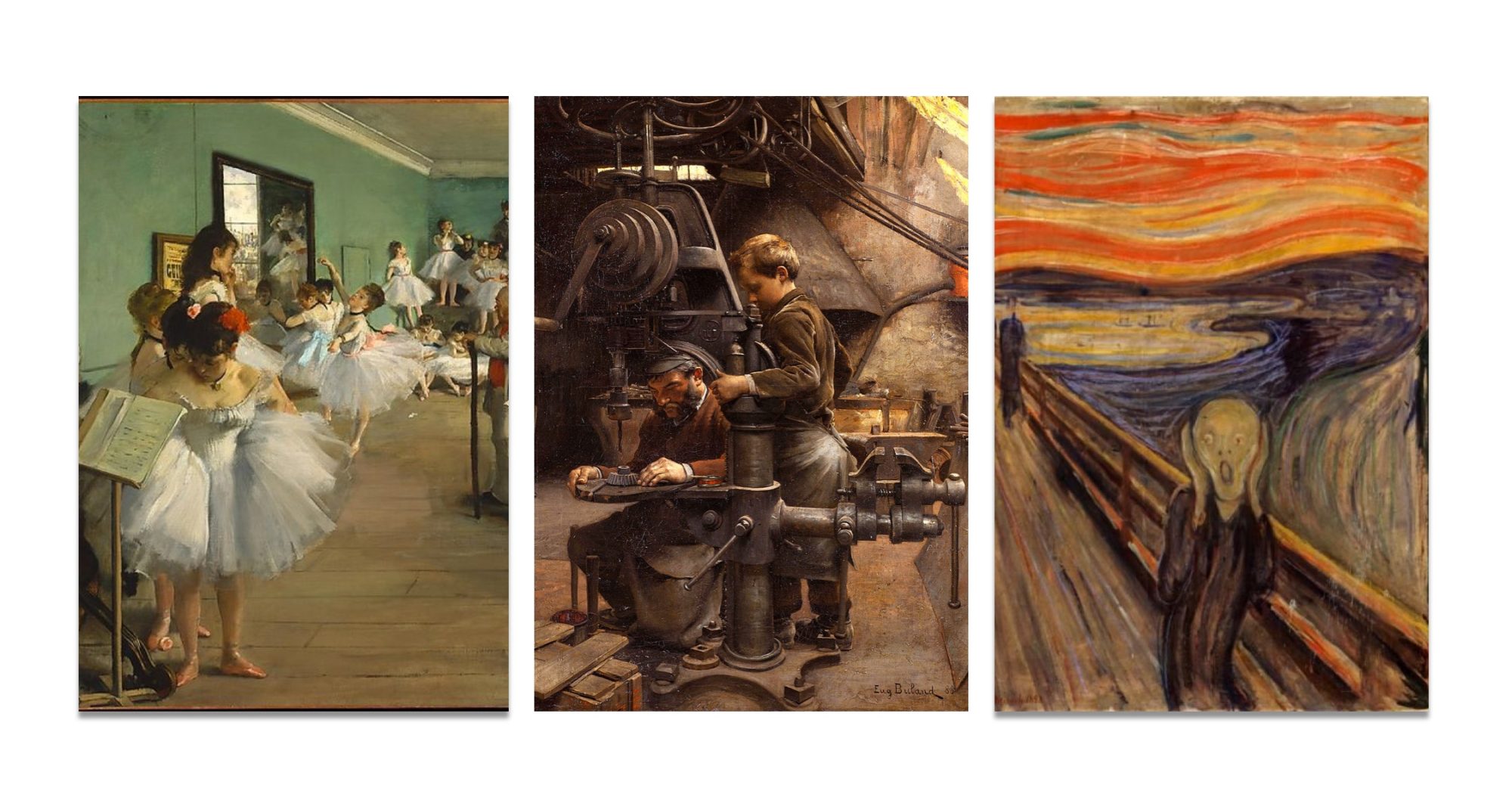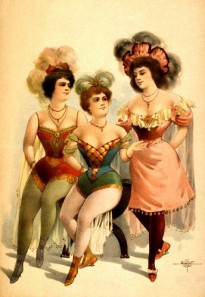The title of our poster, “Destitution, Prostitution,” has a few different meanings behind it. It can mean that a state of destitution and poverty leads to a life of prostitution. It can also reversely mean that prostitution leads to a person’s moral destitution. These two meanings can combine to reveal a single idea: destitution and prostitution create a self-feeding circle in which being poor can direct one into selling themselves which proceeds to turn that person’s morals to dust. This theory is supported by many of the texts we have read in class. These include “A Modern Harlot’s Progress,” “The Ruined Maid,” and “Mrs. Warren’s Profession.” Each of these texts is very different, but they all provide insight that verifies this concept.
In “A Modern Harlot’s Progress” by William Acton’s Prostitution is a scientific and logical approach to the causes and effects of prostitution. Acton explains that the main cause for prostitution is poverty. Many working women, especially those with children, had no way to feed and clothe themselves or to pay for shelter of some sort. These women had no choice to but to turn to prostitution as their answer. According to Acton’s observations, “…needlewomen of some classes by the incompatibility of infant nursing with the discipline of the workshop” were just one group of women led to prostitution because of the lack of money and lack of time they had to raise their children. Contrary to the popular response of the time, Acton was able to view prostitution without religious or moral bias. His piece does in fact prove that poverty, lacking necessities, and desiring convenience all point toward a woman’s choice to pursue prostitution.
“The Ruined Maid” is a short poem by Thomas Hardy about what it means to be ruined by prostitution. A girl had left the life of working on a farm with her family to become a prostitute. ‘Melia (assumed to be Amelia) grew tired of “digging potatoes, and spudding up docks” and decided that she wanted to live the high life, which comes at a cost. Although she now speaks and dresses like a lady, presumably due to her clients treating her so well, she has corrupted her morals, her integrity, and her virtuousness to escape the life of a laborer. At the least, she admits to her state of ruin. She was very probably living in poverty without any good way to escape a lifetime of hard work. Prostitution probably seemed like a very easy option to become a “lady” like she maybe had always wanted. In this case, Amelia was in a state of destitution that proceeded to turn into prostitution that was followed by the destitution of her morals, further supporting the idea that destitution and prostitution create a cycle.
The play “Mrs. Warren’s Profession by Bernard Shaw confronts the idea of women as brothel business owners and the morality and ethics of such a position. Mrs. Warren’s daughter Vivie states in the play, “The poorest girl alive may not be able to choose between being Queen of England or Principal of Newnham; but she can choose between ragpicking and flowerselling, according to her taste.” These jobs of rag picking and flower selling were common options for people who had to choose between that or prostitution. Although Vivie has a point, let’s be honest, prostitutes make a considerable amount of money and they have patrons who buy fancy items for them, not just in modern times, but in the Victorian era as well. When Mrs. Warren is telling Vivie about her childhood, she explains that she and her sister were very poor and worked in shops for great periods of time for little pay. Justifying her partnership in the brothel she is running, she says of prostitution of poor girls, “It’s far better than any other employment open to her.” Mrs. Warren speaks from both experience and observation. She got involved with prostitution when she could not make ends meet and could not be happy in her low end job and she knows that other women turn to brothels for the same reason. This play relays again that deprivation and deficit is thought by some women to be best solved via selling their bodies to men they don’t know.
These three texts provide evidence of the common theme of our poster “Destitution, Prostitution.” They show that women who work hard and remain in poverty easily turn to prostitution as a way out of their monotonous and difficult lives to forge ahead into a world of extravagant people and material objects. These women begin to become morally corrupt until they are left impoverished in their lack of virtuousness. “Destitution, Prostitution” is more than just a catchy phrase; it is a self-feeding cycle of the ruined woman.
~ J.W.
Works Cited
Acton, William. “A Modern Harlot’s Progress.” Prostitution. 1875. Google Books. Web. 12 Dec. 2012.
Hardy, Thomas. “The Ruined Maid.” 1866. The Victorian Web. Web. 12 Dec. 2012.
Shaw, George Bernard. “Mrs. Warren’s Profession.” 1894. Gutenberg. Web. 12 Dec. 2012.

